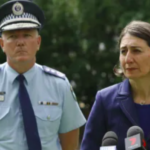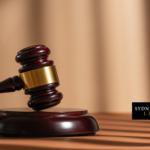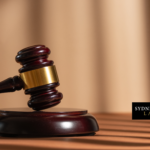What Happens During Arraignment? NSW Court Process in the Spotlight

Have you been charged with a serious criminal offence?
Although most criminal cases can be finalised in the Local court, more serious cases which are called ‘indictable offences’ can proceed to the District or Supreme Court.
There are 4 general categories of criminal offences.
1. The least serious criminal offences are called ‘summary offences’. These are usually dealt with in the Local Court.
2. The next are called ‘table 2 offences’, which can be dealt with in either the Local Court or District Court.
3. The next are called ‘table 1’ offences and these are very often dealt with in the District or Supreme Court.
4. Finally, the most serious criminal offences are called ‘strictly indictable’ offences, which can only be finalised in the District or Supreme Court.
The NSW legal system can seem confusing, and if you are not familiar with the process, you might feel a little overwhelmed at hearing that your case may have to go to a higher court.
Hiring a criminal lawyer can help.
Your lawyer can guide you through the court process, and advise you of whether your case is likely to go to a higher court.
All criminal and driving cases start in the Local Court.
But the exact court that your charge is finalised in will depend on the category of the charge, the seriousness of the specific allegations, your background and history (eg whether you have been convicted of any crimes in the past) and the attitude of prosecutors.
The majority of offences can be tried in the Local or District court, with the exception of very serious cases such as murder, some sexual assaults, drug importations and serious drug supplies etc, which are ‘strictly indictable’.
If you plead ‘not guilty’ to less severe offences, such as summary offences, they will generally be tried by a Magistrate in the Local Court, while more serious offences will often be tried before a Judge and Jury in the District Court.
If you have been charged with a serious criminal offence, such as a ‘table 1’ or ‘strictly indictable’ offence, you will be required to attend a Higher Court court to hear your charges, and plead guilty, or not guilty.
This process is known as arraignment.
NSW courts allow you to represent yourself, but it is a good idea to at least obtain advice from an experienced criminal lawyer before deciding whether to plead guilty or not guilty.
What happens if I plead guilty at arraignment?
If you plead guilty to the charges, the Higher Court Judge will either decide your penalty immediately, or adjourn the matter.
In more serious cases, or where there is a likelihood of a prison term, the matter will probably be adjourned to allow for a pre-sentence report to be prepared and submitted.
In less serious cases, the Judge may be able to deal with the matter immediately.
If you decide to plead guilty, there are a number of things you can do to help reduce the likelihood of getting a severe penalty.
Bringing people to the District or Supreme Court who are prepared to take the witness stand and attest to your character can make a difference.
Personally taking the stand can also make a difference, because the Judge can see first hand that you are genuinely remorseful.
Voluntarily undertaking counselling, or drug and alcohol rehabilitation programs, can help demonstrate that you take the charges against you seriously, and have taken action to ensure you don’t re-offend.
What if I plead not guilty?
If you don’t agree with the charges, you can choose to plead not guilty and for the case to proceed to a Jury trial.
If you enter a not guilty plea, the case will eventually proceed to a trial before a Judge and a Jury, which is when the prosecution will present their evidence against you, and you can present evidence to support your innocence.
If you choose to plead not guilty, it is highly advisable to engage a criminal lawyer to help you prepare your case and argue on your behalf.
If you have been charged with an indictable offence, make sure you seek advice from an experienced lawyer, who specialises in criminal law, before deciding whether or not to plead guilty.
A specialist criminal lawyer can advise you of the penalties you face, possible defences you might be unaware of, and can work towards possibly having the charges dismissed, or successfully arguing a not guilty plea.






